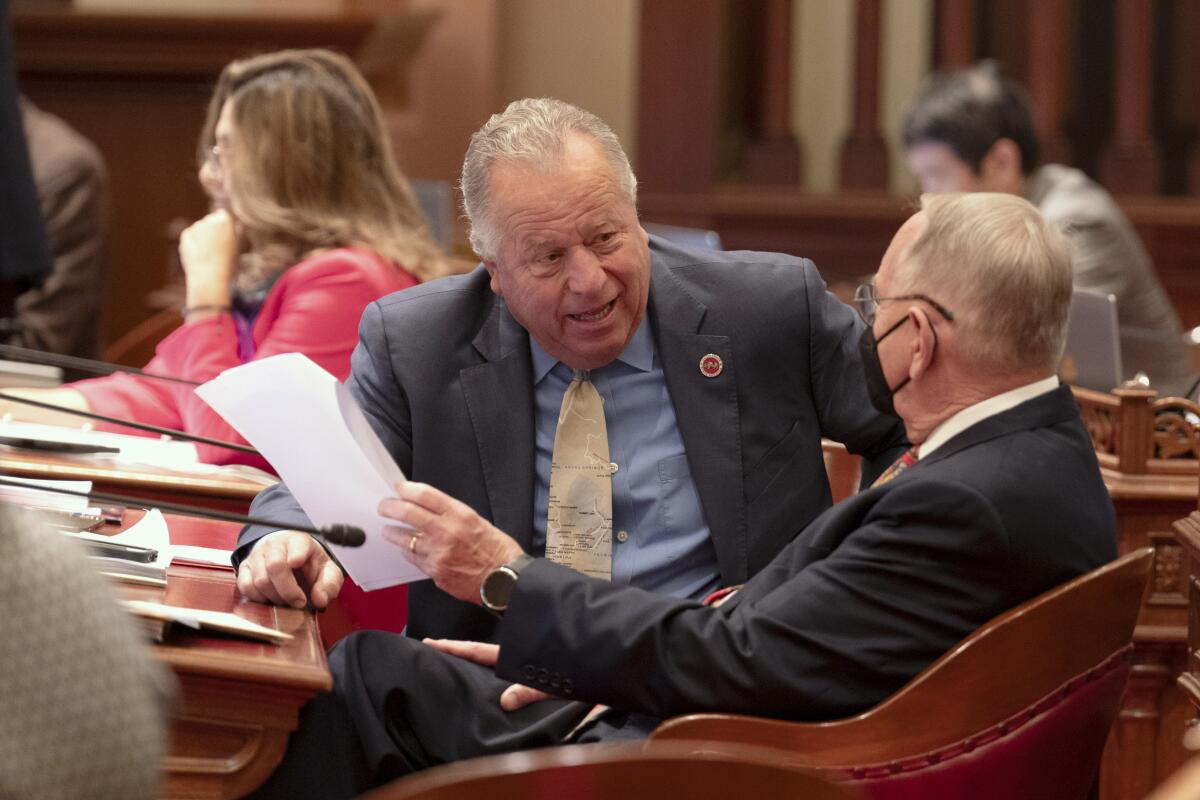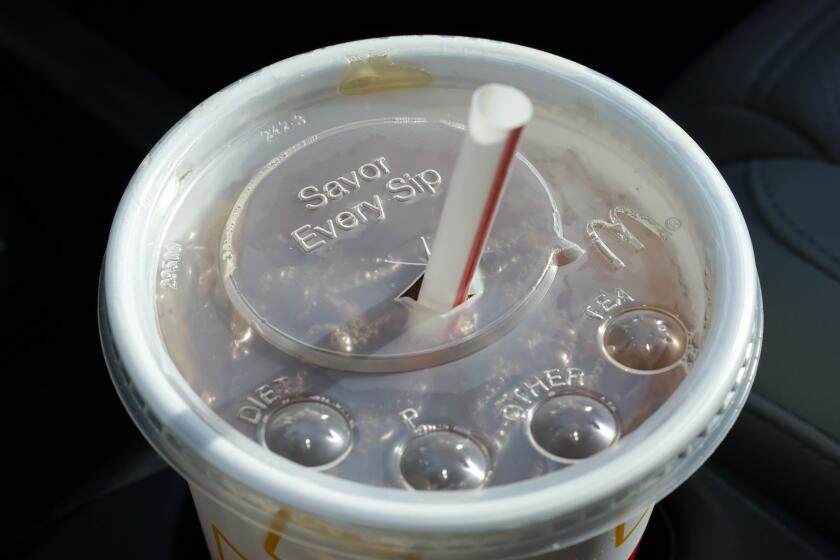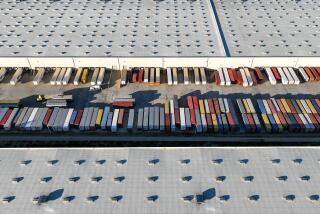Stamping out junk fees in California: Legislation approved by lawmakers, heads to Newsom

- Share via
Junk fees, those tacked-on costs that often come as a nasty surprise to consumers, are set to be banned in California next year.
All that’s left is a signature from Gov. Gavin Newsom after Senate Bill 478 received final approval from state legislators on Tuesday.
The bill, sponsored by Sens. Bill Dodd (D-Napa) and Nancy Skinner (D-Berkeley) and backed by Atty. Gen. Rob Bonta, would outlaw hidden charges, commonly encountered during online purchases.
Businesses would be forced to advertise the true cost of a purchase rather than enticing consumers with a low price, then hitting them with a raft of fees.
Companies that do not comply could face steep financial penalties.
Junk fees have been a particular problem in the travel and entertainment industries, with tickets and hotel rooms advertised at one price but ending up costing much more once “service” or “processing” fees are added on.
“For too long, Californians have been hit with dishonest charges being tacked on to seemingly everything,” Dodd said in a release. “It is time we put the consumer first and create a level playing field for those businesses that advertise the real price, up front.
With more people ordering via apps and drive-throughs, McDonald’s will phase out its self-serve soda machines in dining rooms by 2032.
Bonta called the passage a “win for Californians.”
“I am sponsoring this bill to stop hidden fees because the price consumers see should be the price consumers pay,” Bonta said in a release.
The California Justice Assn., whose members include businesses, pushed back on the law. In a statement, the association said the bill was redundant.
“California already has a law that allows both public attorneys or private individuals to sue businesses who utilize false advertising,” the association wrote. “In short: for situations where an advertisement misstates a price for any good or service by failing to include mandatory fees or misleading a consumer, an action under the (false advertising law) could already be brought by either public prosecutors or private counsel.”
Biden, in his State of the Union address earlier this year, also called out the practice of adding hidden fees, promoting the Junk Fee Prevention Act.
“My administration is also taking on junk fees, those hidden surcharges too many businesses use to make you pay more,” Biden said in the address. “For example, we’re making airlines show you the full ticket price upfront and refund your money if your flight is canceled or delayed.
“Junk fees may not matter to the very wealthy,” he said, “but they matter to most folks in homes like the one I grew up in.”
According to Dodd’s office, Americans pay a total of $28 billion in junk fees per year, with 85% of Americans encountering the practice.
If signed by Newsom, the bill would take effect on July 1, 2024.
More to Read
Sign up for Essential California
The most important California stories and recommendations in your inbox every morning.
You may occasionally receive promotional content from the Los Angeles Times.












